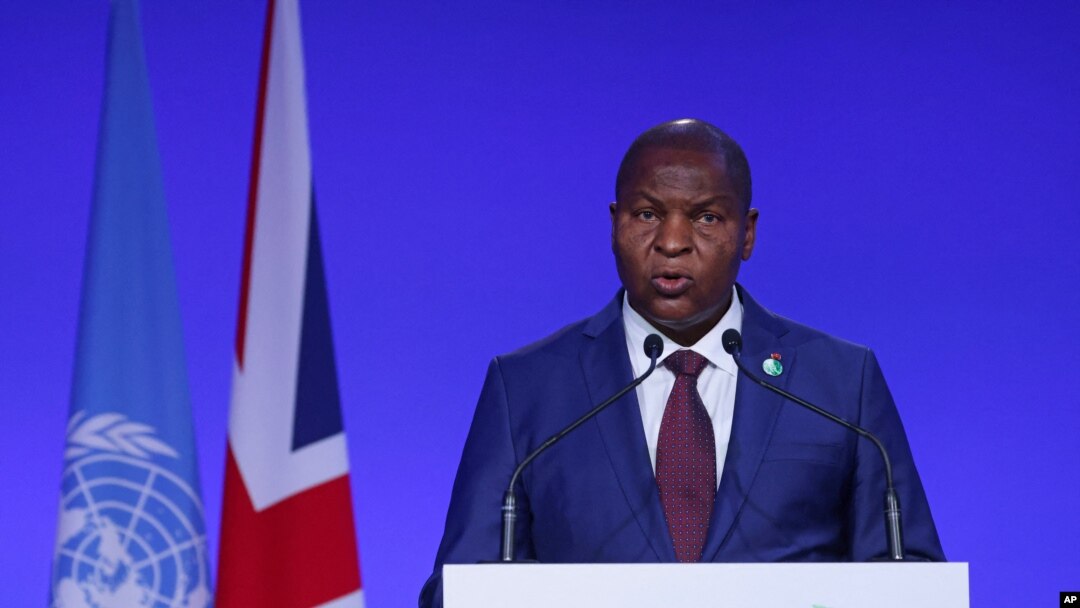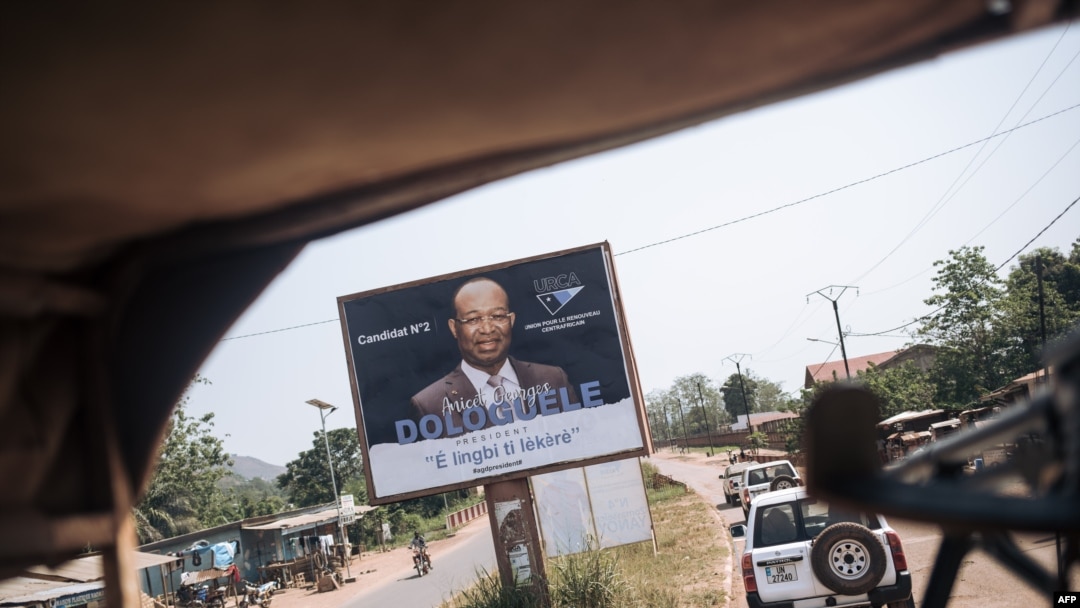The Central African Republic’s main opposition leader, Anicet Georges Dologuele, says he will disrupt the country’s first local elections in 36 years if the 2023 constitution and electoral laws that he says favor President Faustin-Archange Touadera’s party are not immediately revised. Rebel groups are also threatening to disrupt the polls, which the government insists will be transparent and will help restore peace and stability to the troubled state.
Anicet Georges Dologuele says Central African Republic leaders are not showing any signs they want to organize free and fair elections to end a wave of fighting that has engulfed the central African state for more than a decade.
The leader of the Union for Central African Republic Renewal party, or URCA, spoke in the capital, Bangui, on Thursday during a press conference to mark his party's 10th anniversary.

FILE - Central African Republic's President Faustin-Archange Touadera gives a statement at the World Leaders' Summit of the COP26 UN Climate Change Conference in Glasgow, Scotland, on Nov. 1, 2021.
Dologuele, a former prime minister, said his party will not take part in the October 2024 local elections, which he accused CAR President Faustin-Archange Touadera of preparing to rig to favor his party, the United Hearts Movement, or MCU.
He says it is undemocratic and unethical for President Touadera to single-handedly appoint six of the eleven members of the country's elections management body, the National Elections Authority, or ANE. Dologuele says the ANE cannot be seen as credible and transparent when a majority of its members are either loyalist or sympathize with Touadera.
SEE ALSO: CAR opposition, civil society call for local elections boycottThe URCA party also protests rules that bar people with double nationality from running for office. That would ban Dologuele himself, who reportedly has citizenship in another, unidentified country.
Dologuele says Toudera ordered his government to bar CAR civilians who have acquired double nationality in other countries because he knows a lot of politicians who fled from the CAR who are very popular and can beat Touadera and his party in all elections.
Dologuele said if constitutional reforms are not carried out and if the ANE is not made an independent elections management body, his party will disrupt the October local elections, though he did not say how.
However, CAR government spokesperson Maxime Balalou told state TV on Friday that the elections will go forward.
Balalou says President Touadera has instructed his government to ignore opposition threats and continue educating people that the October 2024 local elections will mark a return to democracy and governance and civilians will be able to participate in local development. He says the elections are part of several requests made by the people of the Central African Republic during the National Reconciliation Dialogue that was held in March 2022.
Balalou said the CAR government will not accept calls to change a constitution backed by 95% of voters in a June 2023 referendum.
In that referendum, voters also approved scrapping the constitution’s two-term limit for presidents and extended the length of a president’s term from five to seven years.
Opposition parties say the 67-year-old president is preparing to hold on to power for many years to come.
Over 2,000 seats in 180 local councils will be at stake in the October polls. The elected councilors will then elect mayors for each of the 180 districts.
Security remains fragile as the elections draw near, as rebels and armed groups loot communities for survival, raping women and girls and creating chaos in towns and villages across the country, according to opposition groups.
CAR government officials and the United Nations insist the October elections will help restore democracy and peace to the troubled state.
The central African state descended into violence and chaos in 2013, when rebels forced then-president Francois Bozize from office.
Since then, fighting and chaos has forced close to a million Central Africans to flee to Cameroon, Sudan, and other nearby countries.


